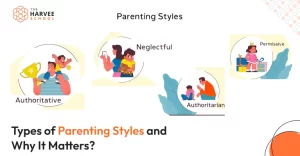7 Points to Discuss in Parent Teacher Meeting
Parent-teacher meetings are crucial for understanding a child’s academic progress and overall development. To make the most of these meetings, parents should come prepared with key discussion points. Here are seven essential topics that should be covered in a parent-teacher conference to ensure a productive conversation.
1. Academic Performance and Progress
One of the primary reasons for a parent-teacher meeting is to discuss a child’s academic performance. Parents should inquire about grades, strengths, weaknesses, and any areas where their child needs improvement. Teachers can also provide insights into how a child compares to their peers and suggest ways to enhance their learning experience. Additionally, discussing any significant improvements or declines in performance can help address potential concerns early on. Parents may also ask about standardized test scores and how they align with overall academic performance.
2. Classroom Behavior and Social Skills
Beyond academics, a child’s behavior in the classroom is vital for their overall growth. Parents should ask about their child’s participation, attentiveness, and interaction with peers. Discussing social skills, teamwork, and discipline helps understand how well the child adapts to the school environment. Teachers can also provide information on how the child interacts with authority figures and handles classroom rules. If behavioral concerns exist, parents and teachers can work together to find solutions that encourage positive behavior changes.
3. Strengths and Areas for Improvement
Every child has unique strengths and areas that need improvement. Teachers can highlight skills where the child excels, such as creativity, leadership, or problem-solving. Additionally, parents should inquire about weaknesses and seek advice on how to support their child at home. Recognizing strengths helps boost a child’s confidence, while identifying areas for improvement allows parents and teachers to work on targeted strategies that help the child progress. Understanding learning styles and preferences can also help in tailoring effective study techniques.
4. Homework and Study Habits
Parents should ask about their child’s homework performance and study habits. Understanding the quantity and quality of homework given helps parents ensure that their child is managing time effectively. Teachers can provide guidance on how to create a conducive study environment at home. Discussions about the effectiveness of homework assignments, how they contribute to learning, and whether they are too challenging or too easy can also be valuable. Parents should also inquire about any additional resources or tutoring options if their child struggles with certain subjects.
5. Emotional and Psychological Well-being
A child’s mental and emotional well-being is just as important as academic achievements. Parents should discuss any behavioral changes, stress levels, or anxiety issues their child might be facing. Teachers can provide feedback on how the child handles school-related stress and suggest ways to support their emotional health. If a child is exhibiting signs of stress, bullying, or emotional distress, addressing these concerns early can prevent long-term challenges. Parents may also ask about school counseling services and mindfulness activities that can help their child manage emotions better.
6. Communication and Parent Involvement
Effective communication between teachers and parents is essential for a child’s success. Parents should ask about preferred modes of communication, such as emails, phone calls, or online portals. Additionally, discussing ways to stay involved in school activities or volunteering opportunities can help build a stronger connection between home and school. Schools often have parent-teacher associations (PTAs), workshops, and events where parents can actively contribute. Being involved in a child’s school life not only helps in monitoring progress but also strengthens the relationship between parents, teachers, and students.
7. Future Goals and Academic Planning
Setting academic and personal growth goals is crucial for a child’s development. Parents should ask about short-term and long-term goals for their child and how they can support their educational journey. Discussing career aspirations, subject choices, and extra-curricular activities can help create a clear roadmap for the child’s future. Teachers may suggest skill-building programs, advanced placement (AP) courses, or extracurricular activities that align with the child’s interests. Planning for high school and college readiness at an early stage can set the foundation for future academic success.
Conclusion
A parent-teacher meeting is an opportunity to gain valuable insights into a child’s progress and ensure they are on the right track. By discussing these seven key points, parents can foster a collaborative relationship with teachers and work together to support their child’s academic and personal development. Preparing a list of questions before the meeting and actively listening to teachers’ feedback can make the session more effective. With strong communication and teamwork between parents and educators, children can thrive both academically and personally.






